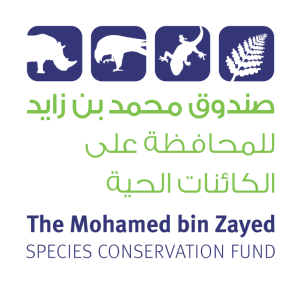Himalayan Grey Langur
Handsome, suave and gentle, Chamba Sacred Langurs (Semnopithecus ajax), are perhaps the heart throbs of the langur world. Restricted to the Chamba Valley of western Himalaya, these langurs live in multi-male, multi-female groups of 25 to 40. The adult males carry a mane-like, greyish brown upper coat that sets them apart from the other Himalayan Langur species. Females, sub-adults, juveniles and infants lack the coat, nonetheless, equally handsome and pretty. Categorized Endangered by IUCN due to their Restricted range , Small population of <250 adult individuals and Conflict with human communities. The Himalayan Langur Project works closely with the communities in Chamba to establish cooperative conservation through credible science and research.


Study of maternal care and infant personality development in Bonnet Macaques in Kerala
Study to investigate the early life interactions with the mother influence behaviour later in life of Bonnet Macaques in Thenmala, Kerala. The results will contribute to the discussions on the impact of maternal behavior vs. outside environment on personality development of the infant in an early life. Comparative research in personality can provide models for human personality research and can illuminate the evolutionary processes that shaped personality structure and promoted individual differences in personality.

MOSI Project
Mosquito Onset Surveillance Initiative (MOSI) project is a permanent international mosquito monitoring programme initiated in 2010 by the World Association of Zoos and Aquariums (WAZA) and the Institute for Zoo and Wildlife Research (ISW), in concert with the Zoological Society of London (ZSL) and Imperial College.

Amphibian Chytrid Fungus on the amphibians
Amphibians are indicators of an environment’s health. Presently, India has 370 amphibian species of which 20% are threatened with extinction. Apart from the major threats of pollution and habitat loss for amphibians in India a new threat has emerged. A deadly fungal disease- Chytridiomycosis! This disease has resulted in the extinction of more than 200 species of amphibians across the globe and has recently been discovered on eight species of endemic and threatened amphibians of India. ZOO/WILD aims to help save them by 1) Monitoring affected populations on a long term basis 2) Understand the distribution of the Chytrid fungus across India 3) Setup a National policy document 4) Establish quarantine facilities for amphibians being exported into the country 4) Setup protected areas specially for amphibians.

Freshwater Biodiversity Research
Freshwater biodiversity and systems are essential for the survival of man and they are the most taken-for-granted groups. We bring to you the plight of one of the more popular denizens of freshwater – Fishes! India has over a thousand freshwater fishes and close to 300 species are found nowhere else in the world. Freshwater fishes in India are of myriad colours, shapes and sizes. Some of them are food, some are pets, some are sport and some are even considered medicinal. The fishes and the fresh waters that they inhabit are the life-blood on which billions of people depend for their food, commerce and development. And yet, freshwater fishes are among the mot threatened group of vertebrates in India. They are taken-for-granted by all and there are no policies protecting this magnificent and highly diverse group. As a cumulative result of exploitation for fisheries and pet trade, destruction of rivers and pollution, close to 40% of Western Ghats fishes suffer from a high risk of extinction. But protecting fresh water and its biodiversity can be challenging especially with so many people involved. Ten ministries, almost 5.5 million people involved in inland fisheries and a pet trade of about 200,000 US dollars! Freshwater fish deserve our attention and support.
Indian Pangolin
The project is proposed to collect basic information on Indian Pangolin Manis crassicaudata distribution locations, existing trade and ethnic use and creating awareness on species conservation among stakeholders in selected areas of nine (9) Western Ghats districts of Tamil Nadu.

Small Mammals
Small mammals are among the most diverse group of mammals on earth with bats and rats alone forming 51.06% of total mammalian diversity in India. They include squirrels, rats, mice, voles, bats, hares, gerbils, hamsters, dormice, porcupines, pangolins and hedgehogs. Rodents are the largest group of mammals in the world comprising 2277 species. India comprises 103 species of rodents, of which 54 are only found in India. But sadly, rodents also represent 52% of mammalian extinction in the last 500 years. Small mammals play crucial roles in various ecosystems without which we may not be able to survive! They disperse seeds, control insect populations that feed on our crops, form an important link in the food chain between plants and the carnivorous predators, are indicator species on changes in the ecosystem. The lack of scientific input in our wildlife policy has pushed them to be considered as pests resulting in species extinctions!. ZOO/WILD take up various research projects to help conserve small defenseless beings.
Sea Cucumbers
India has over 200 species of sea cucumbers and these were harvested extensively for export as food (Beche-de-mer), for traditional medicines and for the preparation of beauty products. Owing to over-exploitation, many species face local extirpation and the government enforced a ban on sea cucumber harvest in 2001. Despite the ban, illegal harvest of sea cucumbers continues. Recently, there is a move to lift the ban, but lack of available information on livelihood dependence on this group and the lack of information on the impacts of over-exploitation of the species in the wild are the main reasons for a status quo. It is imperative that scientific studies are conducted to establish livelihood dependence as well as impacts of harvest on sea cucumbers. Zoo Outreach Organization has initiated a project in October 2016, to collect information on livelihood dependence by local communities to provide evidence-based recommendations to the government. This project is funded by The Mohammad bin Zayed Species Conservation fund.

Status and conservation of Tarantula Spiders
ZOO undertakes various projects that intends to help in understanding the conservation status of theraphosid spiders in India; and whether habitat loss and change in quality contribute significantly to the threat status of theraphosid spiders. Currently working on a feasibility study for establishment of the first invertebrate santuary in India for Theraphosid spider Poecilotheria hanumavilasumica (Mygalomorphae, Araneae) on Rameswaram Island, Tamil Nadu.



Donate to conserve
Support our conservation mission. Be a part of the movement to bring back species from the brink. Help our living planet remain healthy. Join in by donating to Zooreach.
Volunteer or Intern
The future of our living planet is in the hands of the youth to effect a change. Zooreach helps the young and young-minded with opportunities to help build a platform for saving species and habitats from going extinct. We transform the youth with innovations, training, skills and science to develop into a force for positive change to the environment as a whole and communities at risk.
Be a citizen scientist
You can be a scientist whether you are a student or a concerned citizen. You don't need a degree in any biological sciences to be a part of this quest to save our living world; all you need is to actually want to save it, a dash of interest, a sprinkle of curiosity, and the absolute will to make a difference. Join our citizen science programs.

